Do you want to get jobs in South Korea but don’t know how?
You are not alone — People from far and wide dream of moving there for many good reasons, including employment.
Well, the good news is, you can.
But how easy or difficult is it to find a job in Korea? What are the pros and cons? What do you need, and which visa to get? When and how to apply?
This article covers all you need to know about jobs in South Korea for foreigners.
So, let’s begin right in!
TABLE OF CONTENTS
- Why work in South Korea?
- What are the jobs for foreigners in Korea?
- Requirement for employment
- Work Culture in South Korea
- Types of Visas for Jobs in Korea
- Should you consider working in Korea?
Why work in South Korea?
The real question is: why not?

South Korea, or Daehan Minguk as the natives call it, is a country garnering worldwide attention.
Starting from being Asia’s fourth-largest economy to housing big market players like Samsung, LG, Hyundai, and POSCO, it has a robust economy.
Just look at the pictures of major cities like Seoul, Busan, Incheon, or Daegu. I’m sure it would captivate you with the beauty of high-rise buildings and picturesque streets co-existing in one space.
South Korea has taken the world by storm with its well-known booming entertainment industry. As an outcome, it has already become a potential cultural superpower internationally.
It is also home to a rich, colorful, and aesthetic culture that aims to establish calm, peace, and prosperity.
South Korean cuisine is another reason to consider working in or even visiting there profoundly. It caters to all tastes and makes you feel at home with its flavors and ‘visual’ (Korean slang for anything that looks picture-perfect).
If, at this juncture, you are considering exploring this beautiful country (and I’m sure you are), working there would be an ideal way to do it.
It gives you a good and complete experience of all aspects of the culture and lifestyle. Also, it is easy for you to get a visa.
Job prospects in Korea
As far as economic development is concerned, South Korea is one of the most promising countries in Asia.
Because of the ever-growing expansion of big companies and the increase of new businesses, Korea’s job market is enormous and maturing.
South Koreans are now finding it difficult to break into the Korean job market. Instead, they seek prospective employment in countries like China, Japan, Europe, and the United States.
There is a rising necessity for people who speak other languages beyond the native language of Korea. And that’s why foreigners are more welcome in the employment scenario.
Before diving into it, keep a few things in mind.
Koreans are native speakers and have a better cultural understanding than foreigners. Thus, they will always have an edge. So, instead of competing with Koreans, focus on jobs you can do better than them.
Find a niche and work where your credentials and background can help the company.
For example, a German will do better for a Korean company that deals with a German-speaking region.
As a foreigner, you will be more valuable if your expertise is rare in Korea. Or your task involves communicating with international clients, especially from your home country.
In the heavy competition, you will probably get a job opportunity as an ex-pat in South Korea than native Korean citizens.
We can attribute this mainly to how the country’s image in the global perspective changes and grows. As a result, the number of foreign enterprises and ties increases exponentially.
You can see the prospect once you know some basic Korean language skills. You can use some Korean learning apps.
You can take the TOPIK exam. You also get employed in South Korea to bring diversity and contribute to and develop these ties.
Benefits of working in South Korea

Korean culture places heavy emphasis on human relations and welfare. Thus, Koreans consider human capital to be of great importance and ensure investing in and maintaining it.
This would mean you would get top-notch benefits as a part of the Korean workforce.
The advantages provided would differ from one organization to another. But rest assured, your life as an employee in South Korea has many things to look forward to.
Self-improvement is one of the outstanding values in South Korea.
Thus, you can expect the company to offer courses, workshops, and more to help you improve and become better in your field.
Most Korean organizations, large and small, offer lunch in some form or another. Also, many prominent corporations often have an on-site restaurant or cafeteria serving various lunches.
The better the cuisine, the larger the company and it doesn’t just end at lunch; some corporations will even go ahead to provide breakfast and supper.
Korea’s social security system contributes to the national health insurance system. So, once you are a registered South Korean resident, you can join the public health insurance system despite being a foreigner.
The incentives and motivations for jobs in South Korea are many!
What are the jobs for foreigners in Korea?
South Korea has a high demand for foreigners in various fields. More and more job openings are available now than ever before. The prospects for work are not limited to a few industries but across the board.
Some of these positions won’t require you to have fluent Korean! But, of course, a higher Korean level can help you get more job opportunities.
But don’t let that bring your hopes down. You still have many options. So, let’s look at some of the most popular jobs for foreigners working in Korea.
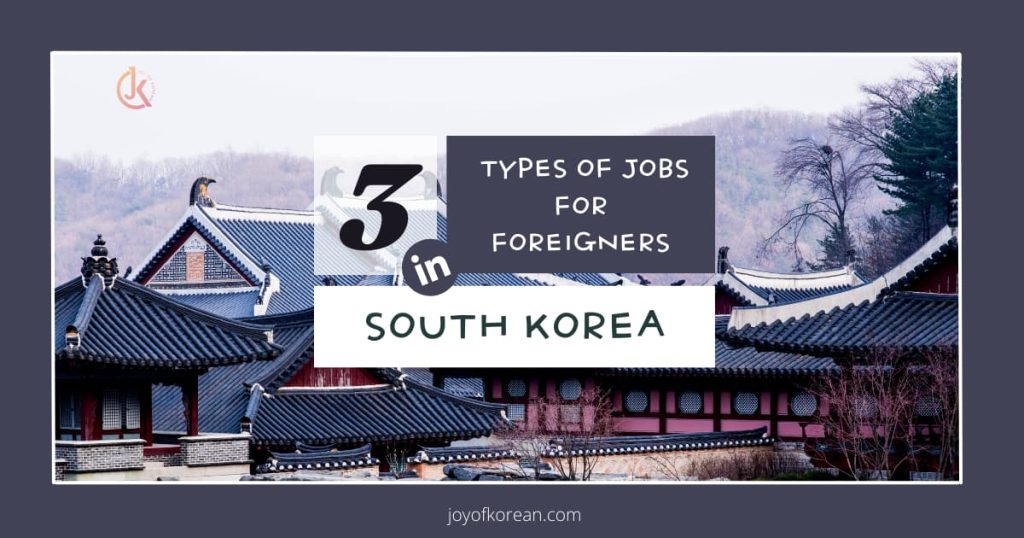
(i) English Teacher
A teacher is the most accessible and great job for a foreigner. In particular if you are teaching English in South Korea as a second language (ESL). It is the most common way to start a career in Korea.
South Korea has a lot of demand for English speakers. As a result, English teachers are sought after across the country. You can also find job postings all year round.
It is not only in schools, tuition centers, colleges, andg corporations for their employees.
You can work for government public schools like EPIK, SMOE, GEPIK, GOE, TaLK, or private centers (Hagwon).
Besides a certificate for an English test like TEFL, TESOL, or CELTA, you must have a bachelor’s degree. It will certainly help if you have prior teaching experience. But it’s not a necessity.
You can apply if you are a native English speaker from the UK, Canada, the US, Australia, New Zealand, Ireland, or South Africa.
You can also do this if you speak fluent English and come from a country with an arrangement with the Korean government. For example, Indians are eligible to apply under the CEPA agreement.
Based on my understanding and what I read, they prefer native speakers. Still, you can apply if you have an excellent native accent, the required certificate, and a superior track record.
As an English teacher in Korea, you can make decent money and get one-of-a-kind personal and professional experience. You’ll quickly get a working visa and live in the place of your dreams.
Teachers also receive financial benefits, such as accommodation and travel expense compensation. This makes this line of work very popular among those wishing to move to South Korea for a job.
Since you will teach English, your lessons and work will be entirely in English.
You don’t need to be good at Korean. But, of course, knowing a little would be helpful.
The great news is that you will learn by immersion, even though Korean is a hard language.
(ii) Office and other jobs for foreigners
South Korea is also a fast-expanding economy with job openings spread across industries. This includes but is not limited to manufacturing, auto, information technology, healthcare, finance, and more.
Besides, the startup sector is thriving and expanding at a rapid pace.
Seoul, the capital of South Korea, has a thriving startup ecosystem and has spent 1.6 billion dollars to expand it in the coming years.
Despite the epidemic, the government has invested in and supported startups amid the crisis.
Other significant work lines famous in South Korea include marketing, entertainment, programming, sales, human relations, public relations, project management, etc.
Such professions require you to be an expert in them. So, employers prefer you over other applicants or locals in the same field.
You can also work as a Korean translator, interpreter, content creator, and other work-demanding language abilities.
Of course, the most popular combination is English and Korean. But there is also a demand for other languages, including less-spoken ones.
Average salaries for such jobs range from USD 1,200 to 4,000 per month. But, of course, this depends on the position, experience, and skills.
Self-employment and freelancing are also very common in South Korea among foreigners.
The opportunities are many. But competition is equally stiff, making it a mixed possibility.
Self-employment is so widely recognized in South Korea that freelancers must show they are qualified. They do not need to be professional and committed employees.
However, being superb at your desired line of work and fluent in Korean will give you many splendid chances.
The minimum wage policy has a lot of importance in South Korea. The minimum pay rate is around 9,160 won or US$8 per hour. This translates to around INR 600.
This means you can earn a minimum of 1.3 million won or a little over 100 USD monthly on just minimum earnings.
(iii) EPS – Employment Permit System
Besides teaching and various white-collar and high-paying jobs in Korea, there are also EPS of migrant workers.
The Employment Permit System (EPS) was introduced in 2004. It provides better treatment for migrant laborers (lower-skilled professions) in Korea.
This requires employees to work in construction, fishery, manufacturing, agriculture, and various heavy and light industries.
From the date of approval, EPS jobs are valid for one year. Ultimately, you will receive an E-9 visa (working visa) if all goes well.
The Korean government has signed MoUs with 16 countries whose citizens are eligible to apply. Examples are the Philippines, Thailand, Sri Lanka, Nepal, Mongolia, Vietnam, and Nepal. India isn’t a listed nation.
In addition to age between 19 and 39 and mental and physical fitness, you must take the EPS-TOPIK exam. This will boost your chances.
Requirement for employment
Some basic requirements are standard across all employment options. For example, you must have a university diploma to find employment in South Korea.
Plus, your degree must be in an area related to the job you’re looking for.
The specific conditions would differ based on the company and industry that you are applying to.
For example, you might require a TEFL certificate to become an English teacher. Likewise, a management position might demand some prior work experience. Your experience, good health, and no previous criminal record matter too!
Do you need to speak Korean to work in Korea?
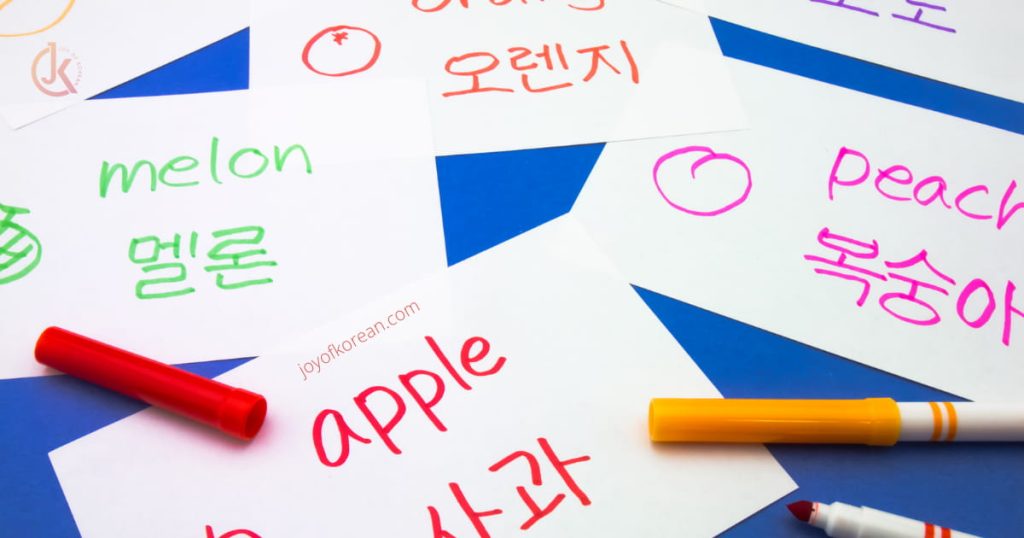
Koreans, especially those in big cities, know some English. This is because most schools and universities teach English. Still, they do not speak well and only understand a bit here and there, mainly written.
Some jobs ask for Korean language ability, but many others do not.
If you are teaching English, you do not need to know Korean. Students are there to learn the language. So, institutions encourage them to converse in English with native teachers.
Although you don’t need to be fluent in Korean, beginner learning will benefit you.
I suggest getting functioning knowledge, including the alphabet Hangul and some day-to-day vocabulary and expressions.
Employers certainly prefer employees who speak Korean or are willing to study it. This enables them to better blend with their counterparts and working surroundings.
Language plays a vital role in jobs that require dealing with the local population.
For instance, speaking Korean isn’t optional but compulsory if you work in a hospital or big shop. Plus, for a career involving Korean, you need to be fluent.
You get enough time to learn, practice, and improve your Korean with locals when you stay there. Besides the many options, you will do it in natural settings and the most authentic way.
Where to look for jobs?
The simplest option is to look for online postings of job openings that companies would upload. Some leading websites include Job Korea, Saramin, Global Korea Center, People N Job, LinkedIn, Work-Net, Craigslist, etc.
If you intend to teach English there, you can try some specific ESL-based sites, agencies that work as mediators, and job boards.
Examples are Dave’s ESL Cafe, Korvia, Gone2Korea, CIEE, English Work, Teach Away, Footprints, Reach to Teach, Teach ESL, Hands Korea, Work N Play, etc.
Plus, you can find job vacancies in English newspapers like The Korea Times, The Korea Herald, and The Seoul Times.
You could also look for opportunities through newspaper listings after moving to South Korea if you could manage the initial expenses.
This has the advantage of attending in-person or walk-in interviews and making a better impression on potential employers.
Procedures and Preparation
South Koreans pay attention to detail and prefer certain specifics to be followed. As a result, many companies even have a standard CV format and specifications.
South Korean CVs are often short, comprising specific keywords rather than phrases. Try to stick to the standard format as much as possible.
A note is that Korean job candidates frequently discuss their professional development, schooling and educational qualifications, and character. And also the reasons for applying for the position they are looking for.
First impressions matter a lot for South Koreans.
They place a lot of importance on appearance, etiquette, and manners. So, be dressed impeccably and in a formal outfit appropriate for the position you are applying for.
When meeting someone in Korea, bowing rather than shaking hands is customary. Shake the hand of the interviewer only if they start it. Being humble yet confident in yourself will give you an edge in interviews.
Punctuality is essential in an interview. Try to arrive 10—15 minutes before an interview in Korea. If possible, bring hard copies of your resume in English and Korean.
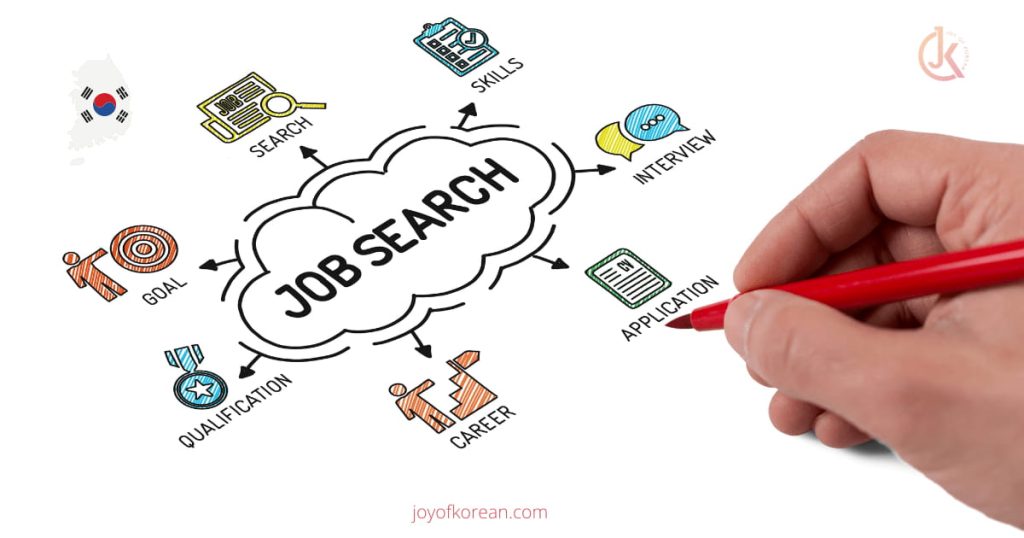
Work Culture in South Korea
South Korea is still a traditional society. But, it believes in incorporating its long-standing values of respect, hierarchy, and humility into a modern culture without losing its core values.
Even after the slow but steady increase in the number of foreigners, most customs remain, especially in their work culture and approach to human relations.
Since South Koreans believe in spending time with each other to build strong bonds, it is not uncommon for the team leader to take the team out for dinners or drinks.
Team dinners, called Hweshik, are a regular activity in South Korean companies to relieve stress. Besides, it forges deeper relations with your colleagues.
South Koreans value respect even for strangers, and thus, if you meet someone for the first time, wait for a third person (if present) to introduce you.
It will help to address someone by their formal title and your own.
Hierarchy is a crucial aspect of South Korean work culture. Thus, it is common to have clear distinctions in mannerisms between hierarchies.
For example, seniority is highly valued in Korea by age and occupation.
Points to consider for jobs in Korea
Here are a few points to remember before applying for any job in Korea.
(i) Working hours
South Korea has a long history of working long hours; the typical workweek is 52 hours (40 regular hours plus 12 hours of overtime).
(ii) Holidays
The number of public holidays varies from year to year, ranging from 10 to 16. This is because your paid annual leave grows each year you work for your employer.
(iii) Tax rates
Workers in South Korea must pay income tax and health and pension insurance. The income tax rate varies between 8% and 35 percent.
(iv) Cost of living
The cost of living varies depending on where you live and how you live. Public transportation and utilities are both reasonably priced.
South Korean cuisine is substantially less expensive than Western cuisine. Marketplaces and small businesses are cheaper than big stores.
(v) Major Cities
Seoul, the capital city, is the most common choice among foreigners for its ease of living for English-speaking people.
Busan and Daegu are also excellent cities for opportunities as they are still expanding and face high demands.
Incheon or Jeju are perfect options for those looking for a slightly lower cost of living. But your Korean language skills must be higher in cities like Incheon and Jeju.
Types of Visas for Jobs in Korea
You must get a visa before leaving there to work in South Korea or stay for over 90 days.
Depending on the profession, there are many types of work visas. Still, the following are some common types:
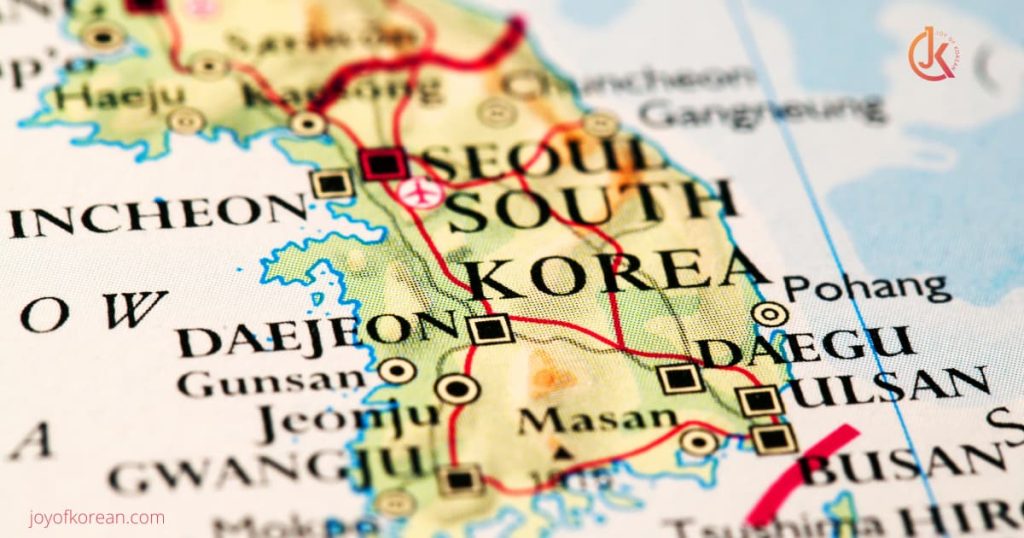
(i) Professor- E-1 Visa
This visa is for foreigners who want to teach or research at educational institutions above the college level.
While the usual validity is for one year in some situations, they may permit you to remain as long as you require, with five-year renewals possible.
(ii) E-2 Foreign Language Instructor Visa
This is a popular visa in Korea. It is one of the easier to get as you need a Bachelor’s degree, a criminal background check, and a sponsor company.
You can teach languages at private academies, public schools, and similar institutions with it. They give multiple-entry visas for 13 months; you can renew after 1 year.
(iii) Guidance on Technological Issues- E-4 Visa
This visa is for ex-pats with knowledge of natural science or high technology. A public or private entity must have invited them. Also, the one who has abilities that are not available in Korea.
The multiple-entry visa has a one-year validity period, while the single-entry access is good for three months.
(iv) Special Profession – E-5 Visa
This visa is available to architects, attorneys, medics, accountants, and other professionals. They must be globally licensed. They also need authorization to practice their field of expertise from the Korean government.
The multiple-entry visa has a one-year validity period; single-entry access is good for three months.
(iv) Activities with a Unique Design- E-7 Visa
This aims at ex-pats who engage in the Korean Ministry of Justice-sponsored programs. This is through a public or private organization.
Multiple-entry visas are valid for one to three years; a single-entry pass is good for three months.
(V) Study Abroad visa
As an international student in Korea, you can work part-time there if you speak some Korean. But there are some conditions.
For example, you need to take a separate part-time work visa (S3) other than a D-type study visa. And you can only apply after a minimum of 6 months from the arrival date.
Plus, you must receive prior approval from your educational institution. This may not be easy to get as they want you to study and not work, the main reason you came there in the first place.
(vi) Other Visas
Many categories of South Korean visas exist.
For example, one can take a general temporary South Korean work visa for 90 days. It depends on the duration and the nature of the job.
Short Term Employment (C-4) is for those working in music, play, sports, entertainment, advertising, and fashion. And also those who want to engage in e-business, research, and technology.
Should you consider working in Korea?
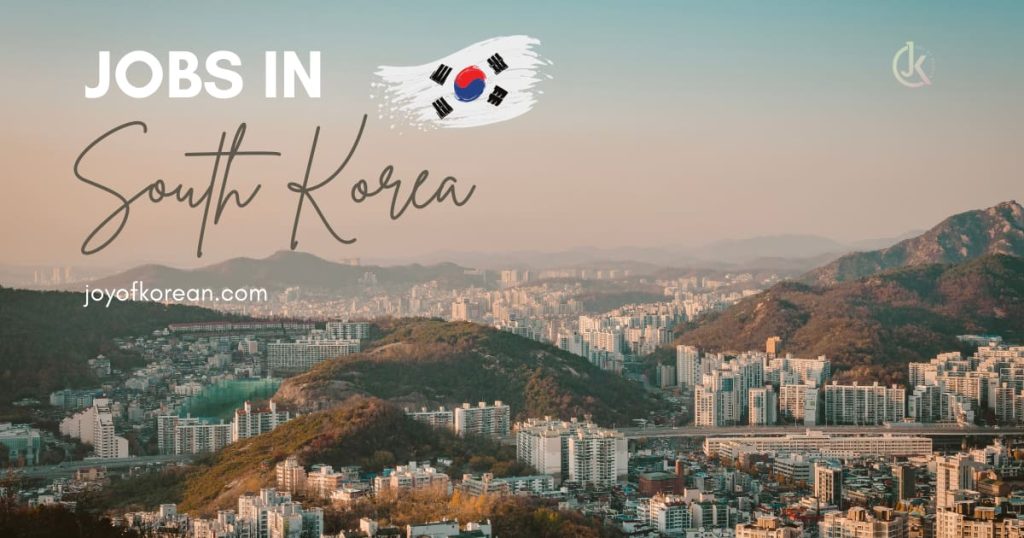
Of all the best reasons to learn Korean, jobs in South Korea are among the biggest motivations for K-lovers! The one-of-a-kind experience will make every struggle worth it.
There is no easy way to achieve your dream. But if you plan wisely and build your profile, you might, one day, be able to live in Korea.
If you want to make the most of your visit and gain an unforgettable experience, learn some Korean!
I have done my best to ensure all information is accurate. Still, a few things are highly dynamic and may change in the future. So be sure to check and verify with the official websites concerned.
Do you plan to apply for jobs in South Korea? Let me know your opinion below!











I’m from Bangladesh and have a Diploma in electrical engineering from the Bangladesh technical education Board and a Bachelor of arts from Bangladesh national University have 25year of experience in industrial electrical maintenance and supervision work also have some leadership skills and B2 level English skills. I am 48years. Please let me know how I can get a job in South Korea.
For that, contact any job consultant that deals with jobs in Korea.
Looking for full time job.
I need to work in South Korea
From Enugu State Nigeria, interested in factory jobs in south Korea, how do I get involved
I am ahmed from Nigeria I have national diploma in accounting and am willing to work in south Korea if I could see an offer
I want work in Korea, any job sir thank you
I want work in Korea, any job sir thank you.
I’m welder work
I need job magazine
Plz contact me I wish to work there
I am electrician cum driver loocking for a job.
I need a nanny job
Hello sir my name is Ahbab I’m from India and would be happy to work for you or for a friend of yours I urgently need a job I will be happy if you write to me soon I will wait for your answer thank you
I am Dinesh, Sri lankan citizen. Now I’m working in Romania before I was working in samsung hevy indrastrital geoje-du South Korea. I have 5 year work experience in South Korea. How I get work visa in south Korea. I need ur reply.
You have to find the companies that are willing to hire foreigners and you fit their requirement. There is no easy way out.
I want to work in South Korea.
Wish you good luck!
What about if you have kids and a spouse. What would be the best way for us?
Finding and getting a decent job, along with a valid visa to work in SK.
Please am from Ghana, Am impressed by your article I just read about. Frankly speaking, I would like to migrate to work in South Korea. I don’t know how I would get any company to cater for my everything, so I work with them. I am very fluent in English, but I don’t have the certificate, And Ghana is an English-speaking country, I would be very much happy to hear from you.
Thank you.
It would be difficult to guide you on that. From requirements to available opportunities, it depends on many factors. I wish you all the best in your endeavor.
I need to work in south Korea
Wish you all the best!
I would love to work in south Korea I have a degree in English.
You can try as an ESL teacher.
Hi Vikash,
I’m 23 years old with a professional bachelor’s degree in biotechnology. In the coming 1,5 – 2 years I would like to work as an expand in South Korea in the biotechnology sector. I heard that South Korea is in demand for biotechnologists and hope that I can improve my Korean enough in 1,5 to 2 years to take a chance.
Do you have an idea if I make a chance with 2 to 2,5 years of experience in this field to find a job in Korea?
Hi, I think it is better for you to study masters in Korean and then get a job in here. They offer a lot of grants and scholarships for foreigners in the stem major.
There are demands in South Korea, but it is not as big as the US, China, and a few European countries, making up almost 85% of the world’s value share in this field. But if you speak fluent Korean, along with a great profile that has demand in the SK market, you can certainly try your luck.
I would like to get a job in Korea for Church services.
Irfan Daniel, Missionary, Presbyterian Church.
Can I go to Korea without a work visa and then find a job there and attend interviews? How to do that?
I don’t think that would be easy. Without a work permit, no company will hire you, even if you manage to give an interview by obtaining temporary visas like tourist ones. One alternative is to study there, and before your study visa expires, find a job post-study.
I have a bachelor’s in nursing but would love to move to Korea, do you know what kind of jobs I can apply for?
Candidates need to take KMLE (Korean Medical Licensing exam) to practice medicine and nurse in South Korea. Since the test is done totally in Korean, thus, one needs to be fluent in the language. Then, you can contact various hospitals and medical facilities for a job. If you get one and so the sponsorship, apply for a visa like E-5 or E-7.
how to apply …./?
That is too generic to answer. Find something beneficial for you.
Hi I’m a student from Senegal university and am now a facilitator helping international industries for a qualified workers in Afrique in large.
Hi, I am Thongphane, nickname is Ter, from LAO PDR, graduated from Curtin University of WA, majoring in mine engineering. I am looking for opportunities to work in South Korea,
Can you give me directions please,
Regards
Ter
I worked in a factory (same) in South Korea for 8.5 years and returned to my country in 2017 with about a year of visa left. Is there any way to get a return visa to Korea? Please help.
Not sure. Perhaps, you need another job so that it can help you get a sponsorship to renew/get awork visa.
My names biendy from rwanda. I would like to how can get a job in Korea.
You can get some ideas from this post.
Hi
I’m from India. Can you plz tell me which company you worked for and what are the requirements and qualifications to do factory job and how to apply?
I have bachelors degree in electrical engineering and 3 years of experience. I’m planning to get settled in Korea. Is that possible?
Yes, but not easy. First, you need to have a good command of Korean language, along with opportunities as a foreign to apply for.
Well all i can say is that Korean is a good place also learning the language you just need to make practice just like how i do i have started to learning Korean language for a long time and am just waiting for it to bear fruits just like practice makes perfect so its great learning Korean language.
Practice makes a significant difference in any language, including Korean.
Hi
I am Marshal Nwafor from Nigeria, I studied guidance counseling with a Bachelor of Education. I will like to live and work in South Korea because is a peaceful country with the fear of God. I discovered that the country is blessed by God. Also, I’m a trained Agro/ Animal producer with many years of experience. So, how will I get a good job with my qualifications and experience? I look forward to your positive response. Thanks
Marshal Nwafor
As a Nigerian can I get a visa sponsorship job from South Korea? Especially in construction industry
Possible.
I would like to work in South Korea for a long time ago. The country have lovely people.
Job search (South Korea).
I am Bangladesh my name is Asraful 49 years old. I am a poultry farm worker & egg collector 8 years working Saudi Arabia Fakih poultry farm Thank you
I am from Nigeria and I will like to work in Korea as an English teacher, but I need a sponsor I am ready as far as they is a sponsor.
Hi, I have a masters degree in Marketing and I have currently studying level 5 korean in Seoul. I also have a TOPIK level 4. So do you think if I try hard I will be able to get a job? Please reply ?!
It isn’t easy, but you can still get a job there if you have a great C.V. and already staying in Korea.
I would like to apply in Food and Beverage industry Management (Mainly Big Hotel properties). But I don’t know how to speak the language. Is it possible to apply it?
Without speaking Korean, getting a decent job there is not easy. Plus, you need a sponsor that can help you get a word permit.
Look forward to hearing from you
I have 10 years of experience in Marketing and Advertising in India in a big global firm. And I am proficient in Business Korean (self-taught, I don’t have a TOPIK certificate yet). Would it be wise for me to take a Tourist Visa and search for a job in Korea (is it legal)? Does my experience make it easier for me to find a job, even if I am on Tourist Visa?
I don’t think it is legal. You need a valid work permit to get a job there. To get that, you need a post-study visa, any Korean company sponsorship, etc.
Hello,
I am from Canada and have a girlfriend in South Korea that I want to be with but marriage is not in the air at this moment. I am looking for a job in Protective Services, Security Services, or anywhere I can apply my 20 years of experience in Resort and Hotel, Casino, Municipal Government, and Community Security Services. I have a College degree in Criminal Justice and other ongoing courses and upgrades in my industry. I do not know where to start.
Thank you in advance.
You can start with the consultant and recruiting agencies that hire foreigners. I’m pretty your specialization can be helpful there, but the language barrier may be an issue. And since you are from an English-speaking country, you can also work as part-time ESL English teacher in Korea unless you get something good enough.
I‘m working in gastronomie, hospitality and bar industry. It is my dream to live and work in South Korea in about 9months from now. Do you have any tips, how I can apply for jobs in that industry and if I can even expect being successful without Korean language. And how much you earn in this industry too?
Without Korean, it would be difficult. However, you can still explore opportunities in places where your profile can fit. Try some consultants or 3rd party recuriters.
I am a skilled worker from Nigeria, I work as a crane operator on the ivory coast, and I am planning to relocate to South Korea next year. What are my chances of getting a job skilled job or an unskilled job in South Korea? Any hope for me? Please reply
There is always some hope, but you need to find employers who can hire you for a job where your skillset is useful.
I am a registered nurse and wish to work from k. Am from Zambia is it possible.
Hi, I want to know about the E7-4 skilled work visa, so that plz tell me if the Korean language is must require or not required for an E7-4 skilled work visa.
While Korean language ability is one of the criteria, the selection is based on a point system. You can still get through without the Korean language.
I am an Accountant, from Nigeria. I want to live and in South Korea
I have been working in IT as a business intelligence specialist (data engineer and reporting) for 8 years now. Is there a demand in S.K.? Is freelance a thing in S.K.?
Of course, there are plenty of demands there. But in most cases, Korean companies prefer someone residing there. However, you can look for companies that may be interested in profiles like yours.
Hello! you didn’t mention working in industries such as manpower, dishwashers, cleaners, and security guards! is it easy to get that kind of job in S.KOREA? What are the requirements to get those kinds of jobs? for those who want to work in S.K., what kind of visa do they need to apply for?
Of course, there is a wide variety of jobs in various fields. But most of them are based on country-to-country agreements. For example, EPS is a non-seasonal temporary labor migration program for which one needs to take the EPS TOPIK test.
I can work with my expertise based on my CV and 16 years of experience in the food industry. I am a Training and Compliance officer, and trainer of Greenwich Pizza (Jollibee food corporation)
Hi, I’m a Brazilian woman, 38yo. I hold a bachelor degree in International Relations from a State University in Russia, currently living in Turkey (my husband is Turkish). I speak Portuguese, Russian, Spanish, English, and a little of Turkish. I’ve been working as a translator/customer support since 2018, but I am unemployed and unhappy with my professional field.
I am planning on changing my career, going back to school to study (besides the Korean language) industrial/product design/ graphic design in Seoul. Do you think it is a good idea? Could you advise on which university I should apply to? Could you say something about the prospects of finding a job as a designer after graduating there? I’d really appreciate you taking the time to help clarifying my questions.
I don’t have much knowledge about various Korean universities offering such courses. Usually, I don’t suggest a career change abroad unless you’re confident about it. Also, getting a job in SK post-study isn’t easy. I’d suggest to check colleges, programs, eligibility criteria, your field, and possible visas that you can get and benefit you. Take your time!
Hi I’m a South African man my name is Vincent Khosa I’m looking for a security job based on my 7 years experience in the security industry and also have experience in a food factory. I’m a very hardworking man.
Regards
Vincent
I hope this email finds you well
I’m a Nigerian girl. I just finished high school. I want to work in Korea.
How to apply for nursing job in korea ?
First, you have to find a job where your profile will be eligible. Plus, they have some other medical criteria along with higher fluency in Korean.
Dear respected Sir/ Mam,
Gd.
We hope all is well with you. I am Sagindra from Nepal. i am a marketing manager for Gurkhas human resources agency. We are an active and trustable skilled manpower supplier agency. We are efforting to find the new overseas job markets for our skilled workers. We are playing the role of a bridge for skilled workers with all kinds of business employers. Our services are usable for you, kindly advice us. We are ready to play our role as an assistant bridge.
We are hoping to hear back from you accordingly.
Highly regarded.
Dear sir,
I am Muhammad Shafi from Islamabad Pakistan basically from Jhang Saddar Punjab I have been serving for 7 months to available myself for any job role. I am very in a very danger because of unemployment I need your help to move myself from Pakistan to your company. I am having a lot of experience in various platforms which are mentioned in the resume and i have shared with you all the necessary documents which are attached to this mail.
I am a talented, ambitious and hardworking individual, with broad skills and experience in digital and printed marketing, social media and leading projects. Furthermore, I am adept at handling multiple tasks on a daily basis competently and at working well under pressure. If someone can guide and help me regarding to have any sort of job as a foreigner in your state and platform which is enrich of learning land.
Kind regards:
MUHAMMAD SHAFI
Plz tell me how can I get job in south Korea my passion is in gold.
Probably in the jewelry and fashion business, but not sure how about it.
hi, my name is Francis and I hail from Nigeria. I am a software engineer and a poet; please how can I get a remote job in South Korea and hopefully move there if a sponsor is seen.
I`m so eager to serve and work at South Korea, my inclination is working job on evangelism, Missionary, and to teach and preach on the area of gospel. I have serving in Choir and leading Bible study group. I am working now on purchasing and procurement area. may God bless Korea.
i am from ethiopia i have first degrees by civil engineering and 2 year of working expreince at site engineer,now i want to ask you does my educational documents and work expreince made me having more work opportunity at Korea?
Hi my name is Jevin I’m from India right now residing in Bahrain. I would like to move to South Korea and settle there, is it possible to come over there on tourist visa and then apply for refuge visa (Jeevan visa) and look for a job.
Please let me know.
I don’t think it’s that simple. Try getting job along with sponsorship or study there to get work permit.
I would like to apply for job opportunities in this country
If you’re considering exploring job opportunities in South Korea as a foreigner, this comprehensive guide provides valuable insights. With South Korea’s booming economy and diverse cultural offerings, it’s an attractive destination for employment. Remember to find your niche and leverage your unique skills to stand out in the competitive job market. And if you need assistance with obtaining a Business Visa for your venture, you can rely on expert guidance. Their Business Visa Consultants can navigate the complexities and help make your South Korean employment dream a reality. Good luck on your journey to a fulfilling career in South Korea!
I need to get any work from Korea
I like to work as a child care assistant I have diploma in Malta.
Exploring job opportunities in South Korea is a topic of interest for many. Your article provides a valuable overview of the job market and the necessary steps to secure employment there. It’s informative and well-structured.
Hi, my office is looking for English speaking candidate to work with us in Seoul, Korea.
Hello, I’m Armel Uwimana from Burundi. I’m a graduate in tourism and hospitality, therefore I’m characterized by hospitality and simpleness. I’m a tremendous asset for your office. Please contact me if you are still looking for someone in your office. I have a passport and I’m ready to join you anytime. Contact me by emai.
Sincerely,
Armel Uwimana
Where can I apply if I work in the graphic field in South Korea, is it difficult to get in?
if you have expertise, there is no harm in trying. Knowing Korean is a big plus!
I am an American female student, and am looking to live abroad. I want to work in the field of Industrial Design and Architecture. Do you think there might be any jobs and/or applicable visas suitable for me? I am currently working very hard on my Korean skills, and can make good amounts conversation. Other than that, I only speak English fluently.
I await your response and advice.
-Thank you, A.E.W.
You can also consider working as ESL (English as second language) teacher. Being a native speaker, you may some opportunities.
I will be pleased and glad to working on South korea but I really need assistance
I need a job, am just ready to work incase given visa and ticket.
Hello sir
I want to try to get a job in South Korea in a manufacturing sector where I can work with my hands. Can you plz give me some information about sponsorship company or how to apply through and what are the requirements and qualifications for this work ?
Its hard to tell. You can check the list of companies offer such jobs, and apply accordingly as per their requirements and your profile.
I am since 10 years work eltrical fields in qatar
Am an draughtman I will like to work in south Korean sir
I’m a Nigerian, bread baker and pastry chef. I want to work In South Korea as baker, though I’ll need to learn their ways of production. Any idea on how I can get a job?, the process and requirements. Thanks.